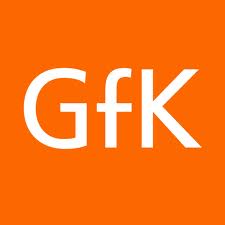 Consumer climate remains stable
Consumer climate remains stable
Nuremberg, 29 April 2014 – There was no discernible trend in the consumer mood in Germany this April. Following a value of 8.5 points in April, the overall indicator is again forecasting 8.5 points for May. While the income expectations value, which makes up part of this indicator, climbed to a record high, the significant improvement in the willingness to buy indicator of the previous month was negated. Economic expectations also fell over the past month.
The upward trend in the economic expectations indicator has come to an end, at least for the time being. This is most likely attributable to the escalation in the Ukraine crisis. The high values reported for willingness to buy in the previous month were also not maintained, although the overall level is still high. In contrast, income expectations improved quite markedly. This is the highest value that has been recorded since the start of this survey in a unified Germany in 1991.
Economic expectations: taking a breather
The continued good level of the economic indicator confirms that Germans continue to regard the domestic economy as being on the road to recovery. However, the clear upward trend, which has been evident since the middle of last year, has now come to a stop. Since February 2014, the indicator has more or less stagnated. In April, it fell by 1.1 points and is now at 32.1 points. This equates to an overall increase of almost 34 points in comparison with the corresponding period of the previous year.
Events in Ukraine are clearly starting to have an impact Germans appear to be slightly unsettled with regard to the further development of the domestic economy for the first time. This has somewhat overshadowed the continued positive general conditions in Germany as well as the stable labor market and moderate inflation. The annexation of Crimea by Russia and the escalation of tensions in eastern Ukraine have caused some consumers to fear that the notable economic recovery could be weakened. This conviction could be strengthened if the situation continues to escalate and if the West responds with stronger economic sanctions against Russia.
In contrast, the increase in the Ifo Business Climate Index in April shows that German companies are still confident business will continue to improve, despite the Ukraine crisis.
Income expectations: highest value since reunification
Following a moderate decline in the previous month, consumers’ income expectations increased quite markedly in April this year. The plus of 6.7 points takes the indicator to a new record of 52.3 points, which is the best value that has been recorded since 1991, when the first consumer climate survey was conducted in a reunified Germany.
This record value has not come out of the blue. In view of the extremely stable labor market situation, employees are confident that they can expect quite considerable salary increases this year. It is likely that their expectations will be met. The first collective wage agreements concluded this year indicate that around 3 percent or even a little more is realistic.
This optimism is certainly also strengthened by the easing of price rises in Germany. According to the Federal Statistical Office, the rate of inflation fell to just 1 percent in March. This is boosting the purchasing power and therefore equates to greater real growth in income.
Willingness to buy: March’s record value not maintained
The increases in willingness to buy of the previous month were negated again in April. Following an increase of 6.6 points in March, the indicator dropped 6.9 points this month to 48.6 points. Despite this small setback, the upward trend is continuing, although at a slightly weaker rate.
One potential reason is the rise in the propensity to save this month, albeit at an extremely low level. This is in all probability attributable to the greater uncertainty of some consumers triggered by the escalation in the crisis in Ukraine.
Consumer climate: stable at good level
Following a value of 8.5 points in April 2014, the overall indicator is again forecasting 8.5 points for May. The consumer climate is therefore at a good level.
GfK is confirming its forecast published in February 2014 that private spending in Germany will increase by around 1.5 percent in real terms this year. While general conditions in Germany, such as rising income and moderate inflation, have remained favorable for the consumer climate, international risks have recently intensified. Although the effect of the Ukraine crisis on the consumer mood has so far been rather moderate, further escalation could have a real negative impact on the consumer climate in future.
These findings are extracts from the “GfK Consumer Climate MAXX sur-vey”, which is based on around 2,000 consumer interviews conducted each month on behalf of the European Commission. The report contains charts, forecasts and a detailed commentary regarding the indicators. In addition, the report includes information on proposed consumer spending in 20 different areas of the consumer goods and services markets. The GfK Consumer Climate survey has been conducted since 1980.
About GfK
GfK is the trusted source of relevant market and consumer information that enables its clients to make smarter decisions. More than 13,000 market research experts combine their passion with GfK’s 80 years of data science experience. This allows GfK to deliver vital global insights matched with local market intelligence from more than 100 countries. By using innovative technologies and data sciences, GfK turns big data into smart data, enabling its clients to improve their competitive edge and enrich consumers’ experiences and choices.
For more information, please visit www.gfk.com
